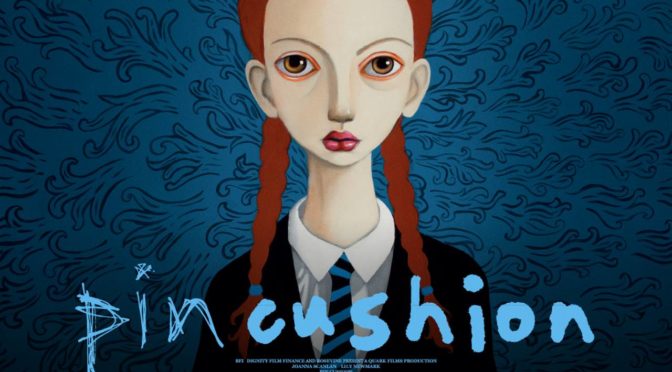A close mother and daughter move into a new town together. The mother, Lyn (Joanna Scanlan; Getting On), is a hunchback who loves animals and kitschy knick-knacks. The teenage daughter, Iona (Lily Newmark; Solo), is a wide-eyed kid, excited to meet her new friends. Iona quickly finds a group of girls at school, but soon faces what being their friend requires. Lyn is unable to make any friends due to her appearance and instead lies about it to her daughter. Director Deborah Haywood closely examines how these two fit, or don’t fit, into society and how that changes them.
The harsh realism can make the film difficult to watch. Iona is a kind, innocent girl and watching her change to fit in with her supposed friends can be a brutal experience, especially when peer pressure is involved. She doesn’t have the social knowledge to understand the dynamics at play with the mean girls she befriends and Newmark shows both her rapidly changing persona and exposes the naivete underneath. Unware of what the girls are truly capable of, she gives in to their demands and suffers severe social and, later, psychological consequences.
Haywood uses Iona’s situation to put the difference between fitting in and belonging into stark relief. Belonging is being accepted for you who are while fitting in is changing yourself to become accepted and Iona is faced with the latter. Even as she is ostracized by her former friend group she still desperately attempts to regain their attention or, failing that, the attention of anyone else. Watching her willingly debase herself just to get a modicum of peer approval is heart-wrenching.

Haywood’s second topic of interest is otherness. Lyn is a hunchback and is immediately mistreated for it. She, like Iona, wants to befriend others and is overly lenient with a neighbor in the hopes that they will become close. Despite this, she is treated poorly by all. Even a community group dedicated to building friendships excludes her. She tries wearing makeup and being kind, but is still mistreated. In an especially effective scene, the leader of the community group tells Lyn that they decided it would be in her best interest to not attend their meetings. Lyn agrees and begins profusely apologizing as if she was at fault for even trying to join. Her attempts to belong only serve to show how different everyone believes she is and each failure leads to deeper self-blame.
The bullying that Lyn and Iona face is similar, yet they are unable to support each other. Iona makes up a lie about her mother being an air hostess and Lyn degrades Iona for her actions at school. In their own attempts to belong, they reject each other. Not because of any dislike, but because in spending time together they are reminded of their own outsider status. This is the source of the crushing sadness that permeates the film. The idea that we will reject ourselves and the ones we love just to get approval from what society considers normal. In the final act, the film takes this to the extreme with a chain of events that is grim beyond all expectations. With unforgiving focus, Haywood shows the rippling damage inflicted in the quest for belonging.

4/5 stars.
